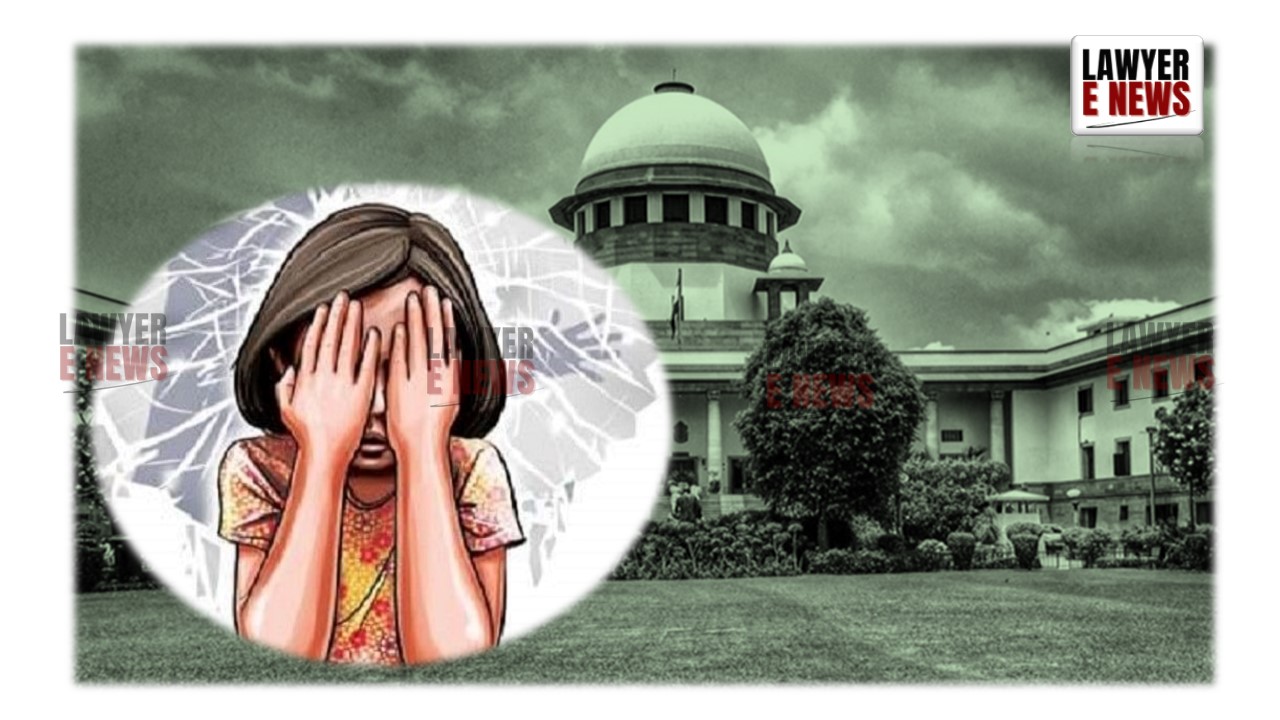-
by Admin
15 February 2026 5:35 AM



Supreme Court of India in Just Rights for Children Alliance & Anr. v. S. Harish & Ors. overruled a controversial Madras High Court decision that had quashed criminal charges against the accused, Harish, under the Information Technology Act (IT Act) and the Protection of Children from Sexual Offences (POCSO) Act. The apex court held that mere possession or storage of child pornographic material, even without transmission, can constitute an offense under Section 15 of the POCSO Act, 2012. This ruling reinstates the charges against the accused, sending a strong message about the gravity of offenses involving child sexual exploitation materials.
The case began on January 29, 2020, when the Ambattur All-Women’s Police Station in Chennai received a tip from the National Crimes Record Bureau (NCRB) linking the accused, Harish, to the download and storage of child pornographic content. An FIR was promptly registered under Section 67B of the IT Act and Section 14(1) of the POCSO Act. A forensic analysis confirmed that the accused's mobile device contained multiple pornographic videos, including two depicting minors engaged in sexual acts with an adult. Subsequently, a chargesheet was filed against Harish for possession of child pornography, classified under Section 15(1) of the POCSO Act.
The Madras High Court quashed the charges, ruling that neither the IT Act nor the POCSO Act applied since there was no evidence of transmission or publication of the material. This decision was challenged by the NGO "Just Rights for Children Alliance," leading to the Supreme Court's intervention.
The Supreme Court was tasked with determining whether mere possession of child pornography without transmission or publication constitutes an offense under the POCSO Act. The legal questions involved included the interpretation of Section 15 of the POCSO Act and Section 67B of the IT Act.
POCSO Act - Section 15 Interpretation: The High Court had narrowly interpreted Section 14(1) of the POCSO Act, arguing that the accused must have used the child for pornography to trigger an offense. However, the Supreme Court held that the lower court overlooked the wider scope of Section 15, which criminalizes the mere storage or possession of child pornographic material with intent to transmit or share. The Court clarified:
"Section 15 of the POCSO penalizes the storage or possession of any child pornographic material when done with the intention to share, transmit, or distribute, even if no actual transmission occurs."
IT Act - Section 67B Application: Regarding Section 67B of the IT Act, the High Court ruled that Harish's actions did not meet the threshold for an offense because he had only downloaded the material for personal viewing without disseminating it. The Supreme Court rejected this view, noting that possession with intent to distribute suffices to trigger liability. The Court stated:
"Merely downloading or viewing child pornography does not exonerate one from criminal liability. The act of possessing such material with any intention to transmit or share is enough to fall within the ambit of the IT Act."
Rejection of High Court's View on Moral Decay: The High Court had observed that Harish's actions amounted to "moral decay" but not a prosecutable offense. The Supreme Court harshly criticized this reasoning, emphasizing the profound harm caused by child exploitation and the duty of the judiciary to take such offenses seriously:
"Child sexual exploitation does not end with the initial act of abuse. The continued storage and viewing of such material perpetuates the harm and constitutes a grave violation of public morality and law."
In a detailed judgment, the Supreme Court outlined the broader scope of Section 15 of the POCSO Act, stressing that the law does not require proof of transmission for charges to stick. The Court also underscored that possession of child pornography for even potential distribution is sufficient to prosecute under both the POCSO Act and the IT Act. Additionally, the Court suggested legislative changes to strengthen the law around child pornography.
The term "child pornography" should henceforth be referred to as "child sexual exploitation and abuse material (CSEAM)" in judicial proceedings.
Social media platforms and intermediaries were urged to ensure stricter compliance with child protection laws.
The Court recommended sex education reforms and awareness campaigns to reduce the demand for such exploitative material.
The Supreme Court’s judgment reinstating the charges in this case serves as a significant legal precedent for the prosecution of child pornography offenses. By clarifying that mere possession with intent to distribute is punishable under both the POCSO and IT Acts, the Court emphasized the gravity of crimes involving child sexual exploitation materials. This ruling underscores the judiciary's commitment to upholding the rights of children and deterring the proliferation of harmful content.
Date of Decision: September 23, 2024
Just Rights for Children Alliance & Anr. v. S. Harish & Ors.
